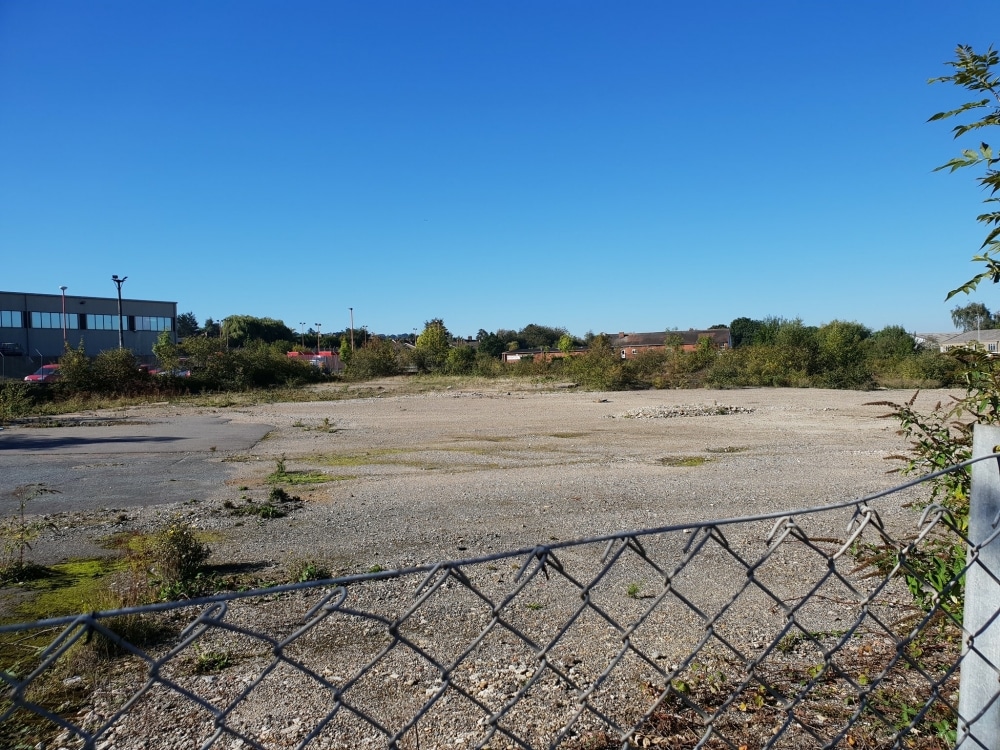The document, which closes for public comment on Monday [November 12], shows the location of all new housing in the borough up to 2031.
A total of 6,828 homes must be built by then – including 480 around Lower Haysden Lane, adjacent to the Country Park on land designated as Green Belt.
This means there is a presumption against development to preserve boundaries with the countryside and stop urban sprawl. But it can be overridden if there are ‘special circumstances’.
A further 352 houses will be built at the old Coblands nursery on Trench Road.
One of the criticisms of the Local Plan is that sites such as the old Colas compound on Vale Road and Southern Salads on Cannon Lane, regarded as ‘brownfield’ or previously developed, are sitting empty.
But they are not technically regarded as brownfield because they have been earmarked for commercial development to create jobs, rather than residential.
The council says there is only room to build 250 houses on official brownfield sites across the whole of the borough.
Louise Reid, Chief Planning Officer at Tonbridge & Malling Borough Council, told the Times: “You can see, it doesn’t go very far towards meeting our need.
“We’ve looked at them all, we’ve been really successful at building on our brownfield sites up to now and in effect what’s happened is we’ve used them up.
“There were lots in the town centre which have been really successful in using them up last time and the time before that – like Medway Wharf Road – which is why we have so few left.
‘We still need to keep employment in the borough.
A healthy economy is necessary to support housing’
“I know people have pointed out brownfield sites but it’s a misconception,” she added. “Actually they are employment designation sites. That’s where the confusion comes in.
“We still need to keep employment in the borough. A healthy economy is necessary to support housing.
“And there could be lots of activity going on in the background, and people just see an empty site. There’s a lot of interest in that land.”
Mrs Reid stated that the town has ‘had a lighter touch in terms of Green Belt’ compared to other parts of the region like Borough Green because of ‘other challenges such as the flood risk and infrastructure provision’.
Howard Rogers, Cabinet Member for Strategic Planning and Infrastructure, said the council was reliant on developers being able to make a profit.
“They are not going to come along and say, ‘we’ll build 2,000 here and keep our fingers crossed somebody will buy them all of a sudden’. We have to recognise that market principle,” he said.
He added that previously used sites can be unattractive to the construction industry because of requirements like decontamination.
“Brownfield is not necessarily the cheapest place to build. That will influence developers because it’s clearing up the mess that has been left behind. It can be extremely expensive.”
The council Leader, Nicolas Heslop, stressed there was not currently enough land available to meet the need for commercial expansion.
“My understanding is there’s an affordability issue in terms of renting and purchasing employment sites,” he said. “There is a greater demand than availability, which is pushing up the price.”
The Colas site, which has been decontaminated, is being put up for sale by Rapleys this autumn as a mixed usage scheme for ‘retail and leisure’.
Howard Porter of Tonbridge & Malling Green Party says the council should change the status of such employment sites and claims such projects – like the old B&Q premises – are actually threatening the profitability of High Street shops.
“We believe the council has taken the easiest option in identifying the green fields adjacent to Haysden Country Park for development,” he said.
“There are two enormous brownfield sites, Colas and Southern Salads, which we believe should be redesignated for residential use.
“Using them first would follow guidelines requiring the use of open fields only as a last resort.
“And preventing further retail development on the edges of town would safeguard the viability of our High Street as the primary retail area.”
Mary Arigho, Chair of the borough’s Labour Party, said: “Housebuilders have simply been allowed to land-bank plots of land with planning permission and pick off the most scenic areas to maximise profits.
“Add this to the green spaces being sold off to plug budget holes, such as River Lawn, and the quality of life is being eroded for residents.”








